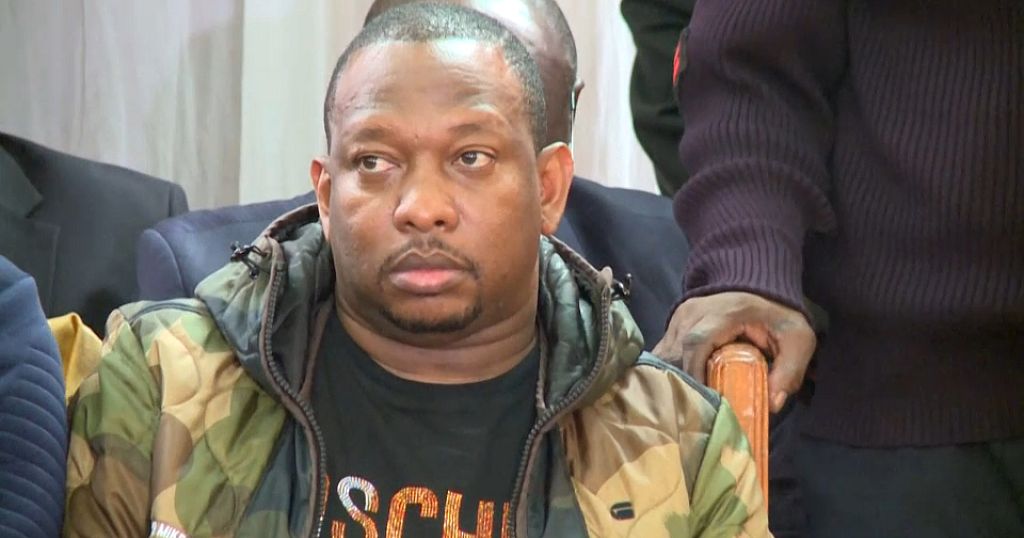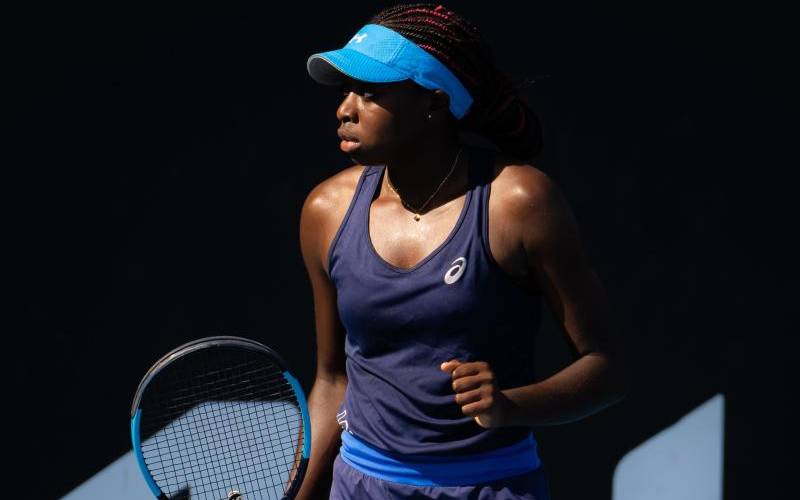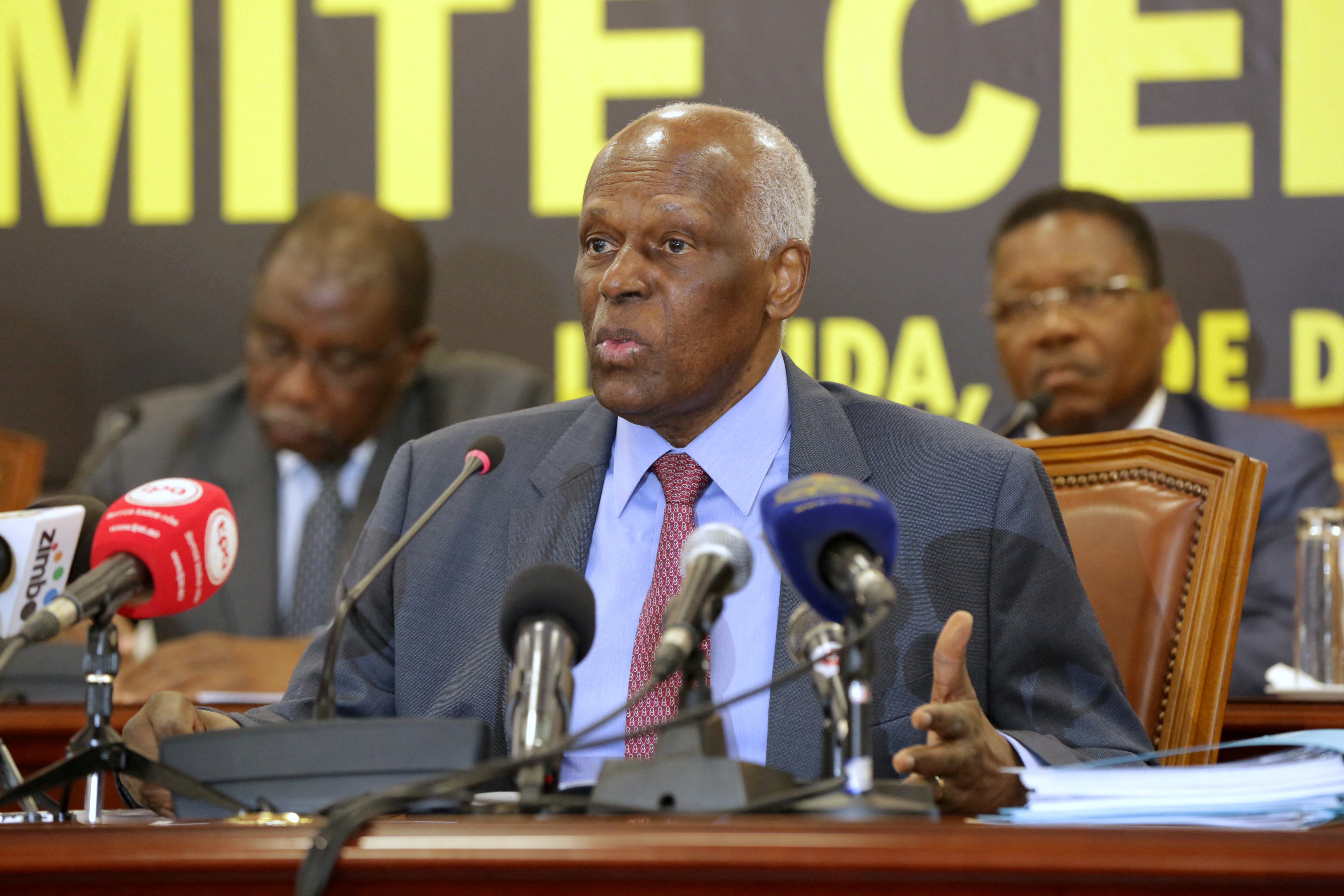World News
Israel Elections Live Updates: Polls Close, Both Leading Parties Claim Victory
Published
6 years agoon
[ad_1]
• Exit polls show a dead heat in the race between Benjamin Netanyahu, the polarizing, right-wing prime minister, and his main rival, Benny Gantz, a newcomer to electoral politics who is seen as a centrist. Both men claimed victory.
• Early analysis showed Arab voters headed for a historically low turnout.
• If he wins a fourth consecutive term, Mr. Netanyahu, 69, could make history in a number of ways: In July, he would become Israel’s longest-serving prime minister; he has vowed to annex parts of the West Bank, reversing half a century of policy and setting back prospects for a Palestinian state; and he could also become the first sitting prime minister to be indicted.
• While Mr. Netanyahu has appealed primarily to the right, Mr. Gantz, 59, a retired lieutenant general and former chief of staff of the Israel Defense Forces, has reached out for allies across the political spectrum. He has sought to make Mr. Netanyahu’s expected indictment on corruption charges the main issue.
Exit polls show Netanyahu and Gantz in dead heat; both claim victory
Mr. Netanyahu and Mr. Gantz emerged in a dead heat in Tuesday’s parliamentary election, according to preliminary exit polls.
The muddled projected outcome left Israel teetering at a critical juncture between an ever sharper turn to the right or a more moderate reset of the political order.
The exit polls of the three main television channels projected differing outcomes, with two putting Mr. Gantz’s Blue and White party ahead and a third showing him in a draw with Mr. Netanyahu’s Likud party. But it was not clear which man would be in a position to form a governing coalition with a parliamentary majority, raising the specter of political limbo.
The results may become clearer as vote counting progresses in the coming hours. But it was also possible that the result could still be tipped by the final count, including the votes of soldiers, prisoners and hospital patients, later this week.
Still, Mr. Gantz’s strong performance against the long-dominant Mr. Netanyahu was a remarkable achievement for a political newcomer, and he was already claiming victory despite the lack of clarity and the obstacles that remained ahead.
“We won! The Israeli public has had their say!” his party said just after 10 p.m. “These elections have a clear winner and a clear loser. Netanyahu promised 40 seats and lost. The president can see the picture and should call on the winner to form the next government. There is no other option!”
Mr. Netanyahu, for his part, claimed a “definite victory” for the right-wing bloc in Parliament. “I thank the citizens of Israel for their trust,” he wrote on Twitter. “I will start by assembling a right-wing government with our natural partners tonight.”
The Arab vote headed for historic low
Political analysts said the turnout in Arab areas of Israel, where citizens have become disillusioned with Israeli politics and with their own politicians, appeared to be headed for a historic low.
With turnout lagging and the fate of the election potentially swinging on one or two seats in a coalition, every party was pleading with its voters to race to the polls before it was too late.
But among Arab voters, where a boycott movement appeared to be having a strong effect, the haranguing was especially intense.
“The right is planning to crush the Arab parties, it wants to erase us off the political arena,” Mtanes Shehadeh, a spokesman for the struggling Ram-Balad party, wrote in a WhatsApp message to supporters. “This is Netanyahu’s dream.”
In Tamra, muezzins called to the faithful from a mosque: “Go out to vote and support the Arab parties. They are in danger.”
Tamar Zandberg, leader of the left-wing Meretz party, which was in danger of falling short of the threshold to enter Parliament and enjoyed sizable Arab support, raced to Kfar Kassem, another large Arab town.
“We are continuing with all our strength, going from house to house and calling people out to vote,” said Aymen Odeh, leader of Hadash-Ta’al, one of two predominantly Arab parties vying for seats in Parliament. “Our nightmare is the prime minister’s fantasy,” he added. “A Knesset without Arab representation is suddenly looking like a realistic option. I know gevalt is in Yiddish, but the concern for our children’s future is universal.”
Netanyahu’s party places hidden cameras at Arab polls
A boycott campaign wasn’t the only reason for poor turnout among Arab voters. Early Tuesday, Mr. Netanyahu’s Likud Party acknowledged sending more than 1,000 activists with cameras into polling places in Arab towns.
At least some of the Likud observers concealed the cameras, as online videos showed. Likud said the move was aimed at capturing evidence of any irregularities. But the Arab party Hadash-Ta’al filed a complaint, calling it voter intimidation, according to Israeli news reports.
Just before 9 p.m., the left-wing party Meretz, which is counting on Arab support to clear the threshold to be seated in Parliament, appealed to elections officials to keep the polls open in Arab villages an extra hour to allow in any voters who had initially been scared off by the cameras.
How it works
Voters cast ballots for parties, not candidates. Thirty-nine parties are participating. The percentage of the vote determines a party’s number of seats in the Knesset, or Parliament. Any party needs at least 3.25 percent of the vote for a seat.
Mr. Netanyahu’s Likud party and Mr. Gantz’s Blue and White alliance are expected to gain more seats than any other group. But each will fall far short of achieving a 61-seat majority on its own, meaning that a new government will almost certainly be formed by a multiparty coalition.
[See our guide to the Israeli elections.]
Members of Israel’s military were allowed to vote up to 72 hours in advance. The rest of the country’s 6.3 million eligible voters can cast ballots at more than 10,700 polling stations across the country, including hospitals and prisons, between 7 a.m. and 10 p.m. (midnight to 3 p.m. Eastern).
Except for diplomats posted abroad, Israeli citizens cannot cast absentee ballots. Those who wish to vote must travel to Israel.
Possible outcomes
Likud wins the most seats. Mr. Netanyahu’s party might be able to reach a majority with the help of smaller right-wing parties.
Blue and White wins the most seats. Mr. Gantz and his partners might be able to reach a majority with a combination of smaller parties on the left and right.
Unity government of Likud plus Blue and White. While Mr. Gantz has vowed never to serve in a government led by Mr. Netanyahu, there has been speculation that their parties might negotiate to form a unity government if neither can attain the sufficient number of seats. Such a possibility would increase if some smaller parties needed by Mr. Netanyahu and Mr. Gantz fail to make the 3.25 percent threshold.
Any party that wins at least 3.25 percent of the vote gets at least three seats in Parliament, but if parties don’t pass that threshold — and many smaller parties do not — their votes are discarded.
Netanyahu’s ‘gevalt’ grenades
Mr. Netanyahu has shown a penchant for appealing to anti-Arab racism in the finales of Israeli elections, aimed at whipping up the extreme right to fend off challengers and protect his parliamentary majority.
During the 2015 election, Mr. Netanyahu beseeched right-wing voters to cast ballots after a coalition of Israeli Arab parties announced that early voter participation by its supporters had tripled. He posted a video on his Facebook page expressing alarm that Israeli Arabs were “being bused to the polling stations in droves” by left-wing groups.
In what critics are calling a similar appeal to the right in this election, Mr. Netanyahu unexpectedly promised to begin extending Israeli sovereignty over the occupied West Bank if re-elected. The move would almost certainly doom a two-state solution.
[In seeking re-election, Mr. Netanyahu put the West Bank on the ballot.]
Late Monday, he even trotted out his American pollster to attest to his contention that the small number of Likud voters who fail to cast their ballots on Tuesday could cost him the election.
Israelis have a term for Mr. Netanyahu’s late surprises: the “gevalt campaign,” a reference to the Yiddish term for incredulity.
In Gaza, imagining an election, with envy
Mohammad al-Saptie, 28, has never voted. He envied Israel’s democratic system, he said in Gaza City, as people a few miles away cast their ballots for the fifth time since the last election in Gaza, in 2006.
Mr. al-Saptie, a deliveryman, daydreamed aloud about what a free election might mean for Gaza and how he might choose a party or a candidate to support.
He thought about his 20-month-old daughter, Warda, and about the three wars he has lived through — not counting the 2007 civil war in which the militant group Hamas seized control in Gaza.
“I would vote for a government that can negotiate, make peace and reach a solution with Israel,” Mr. al-Saptie said, “because we do not want blood, murder, death and destruction.”
Like many Palestinians here, Mr. al-Saptie said he was frustrated by Hamas, whose takeover precipitated the Israeli blockade of Gaza that continues to this day. He said he wished Gaza’s armed factions could be brought under the control of leaders with stronger public support.
His aspirations, he said, are simple: “Security, safety and jobs. We do not want more than this.”
In the West Bank, Palestinian officials were following the election closely but there was no shortage of cynicism.
“The two camps are competing with each other over how much they will take out of our lands and how brutal they should be with us,” said Nabil Shaath, a senior Palestinian official, in a telephone interview.
[ad_2]
Source link
Comments
The Kenyan Digest Team

You may like
Rayvanny officially leaves Diamond’s WCB Wasafi after 6 years
Raila Odinga is the most popular presidential candidate, a survey released by Infotrak
Newly-crowned Kenyan Wimbledon champion Angella Okutoyi would like to play against American star Serena Williams

The Mombasa High Court has ordered IEBC to clear Sonko to run for the Mombasa governorship.

A new born baby was pulled out of latrine in Mururi.

Kenyan Rapper Colonel Mustafa has leveled fresh accusations against his ex-girlfriend Katoto.

Okutoyi and Nijkamp qualify for Wimbledon Open final
Fans will have to brace themselves for a sober 90 minutes, the Gulf Arab state announces.
